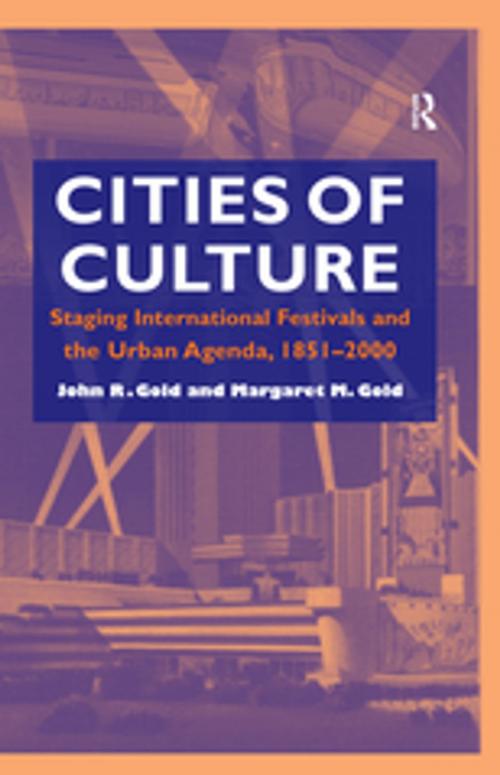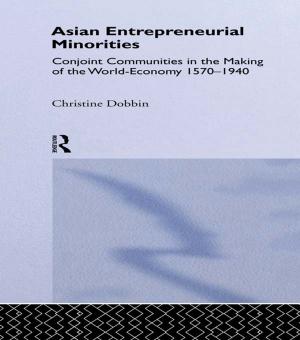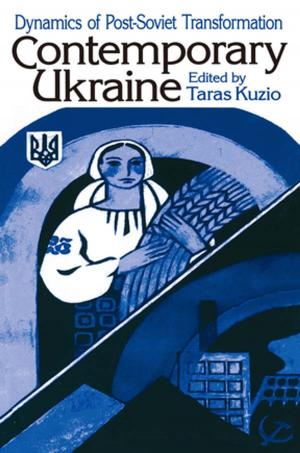Cities of Culture
Staging International Festivals and the Urban Agenda, 1851–2000
Nonfiction, History| Author: | John R. Gold | ISBN: | 9781351951463 |
| Publisher: | Taylor and Francis | Publication: | December 5, 2016 |
| Imprint: | Routledge | Language: | English |
| Author: | John R. Gold |
| ISBN: | 9781351951463 |
| Publisher: | Taylor and Francis |
| Publication: | December 5, 2016 |
| Imprint: | Routledge |
| Language: | English |
City authorities in recent years have competed vigorously to gain the right to host international festivals. In doing so they are heirs to a long tradition, since cities have always served as a natural location for festivals and fairs, providing settings on a scale impossible elsewhere. Cities of Culture examines the role of the Western city as the scene of staged cultural events over the last 150 years. Adopting a lively comparative perspective, it highlights the development of international festivals since London's Great Exhibition of 1851. Making extensive use of case studies and illuminating examples, it offers thought-provoking insight into the material and symbolic significance of international festivals in urban affairs. The book opens with an historical analysis of the role of the city as centre for celebrations, rites and festivities from Antiquity to the French Revolution. The next three sections of the book each focus on a different form of international festival. The first deals with the history of staging the International Expositions, with case studies of the Great Exhibition (1851), New York's World's Fair (1939-40) and Montreal's Expo 67 (1967). The next part covers the Summer Olympic Games from their revival at Athens in 1896 to the Atlanta Games (1996), discussing the implications of their fluctuating fortunes for their host cities. The third section discusses the history of a recently-founded event that is assuming ever-greater importance - the European Cities of Culture programme. The conclusion provides an overview of the events that celebrated the Millennium and examines the prospects for international festivals as part of the urban agenda of the twenty-first century. Cities of Culture will appeal to students of cultural history, urban and cultural geography, specialists in arts and heritage events management, and anyone with an interest in the development of the contemporary Western city.
City authorities in recent years have competed vigorously to gain the right to host international festivals. In doing so they are heirs to a long tradition, since cities have always served as a natural location for festivals and fairs, providing settings on a scale impossible elsewhere. Cities of Culture examines the role of the Western city as the scene of staged cultural events over the last 150 years. Adopting a lively comparative perspective, it highlights the development of international festivals since London's Great Exhibition of 1851. Making extensive use of case studies and illuminating examples, it offers thought-provoking insight into the material and symbolic significance of international festivals in urban affairs. The book opens with an historical analysis of the role of the city as centre for celebrations, rites and festivities from Antiquity to the French Revolution. The next three sections of the book each focus on a different form of international festival. The first deals with the history of staging the International Expositions, with case studies of the Great Exhibition (1851), New York's World's Fair (1939-40) and Montreal's Expo 67 (1967). The next part covers the Summer Olympic Games from their revival at Athens in 1896 to the Atlanta Games (1996), discussing the implications of their fluctuating fortunes for their host cities. The third section discusses the history of a recently-founded event that is assuming ever-greater importance - the European Cities of Culture programme. The conclusion provides an overview of the events that celebrated the Millennium and examines the prospects for international festivals as part of the urban agenda of the twenty-first century. Cities of Culture will appeal to students of cultural history, urban and cultural geography, specialists in arts and heritage events management, and anyone with an interest in the development of the contemporary Western city.















